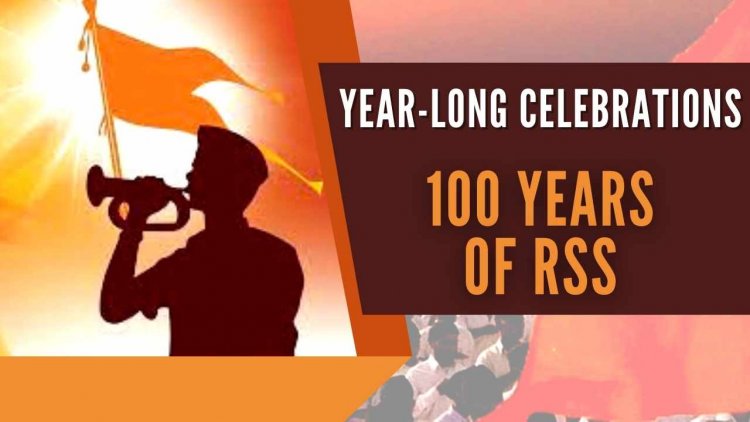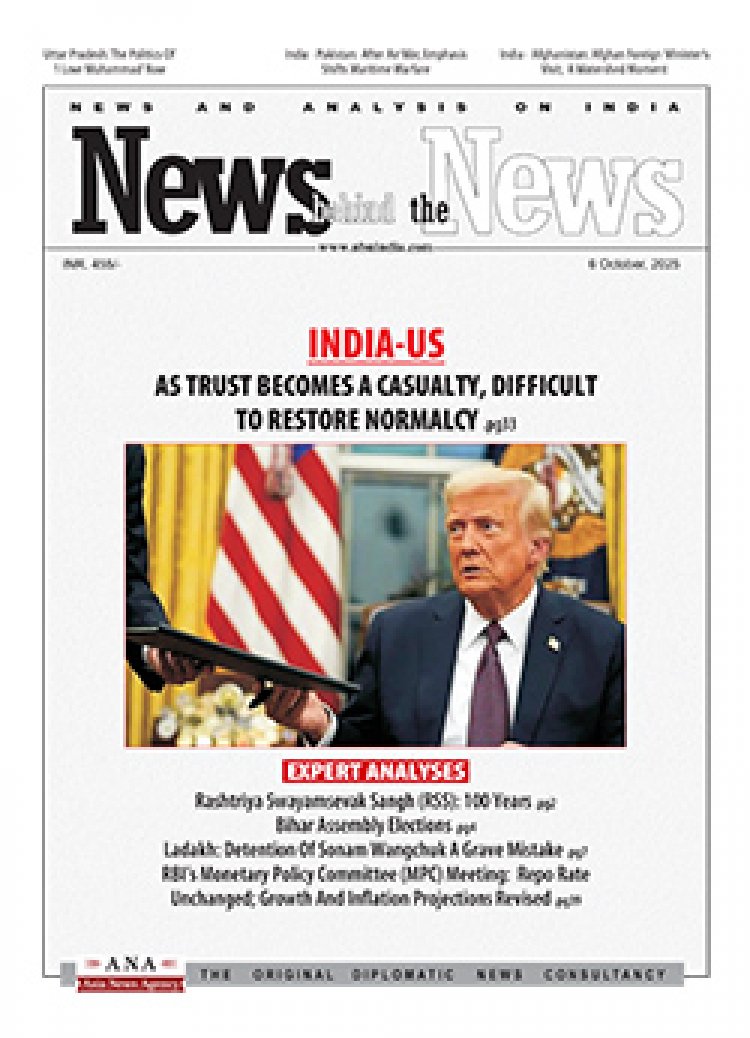100 Years of the RSS: Views and Beliefs
Asia News Agency

The RSS, founded by Dr. Keshav Baliram Hedgewar in 1925, is turning 100 in October 2025. Its present and sixth chief, chief Mohan Bhagwat, turned 75 on September 11, 2025.
The BJP is the political front of the RSS, and a video on its 100 years noted the electoral successes of the BJP as its own.
Bhagwat spoke for more than four hours to an invited audience of around 1,000 people assembled in Vidhya Bhavan, Delhi, over the three days on August 26, 27, and 28.
On the last day, he answered written questions dropped by the attendees over the first two days. He also met diplomats, professionals from various fields, and journalists over the three days and answered questions across the table.
About change in the RSS: The RSS chief was asked whether the RSS changed over time, and if yes, is there anything that is immutable about it. There are three articles of faith that do not change, he said. First is the faith in the formation of the individual; second, change has to happen in society, and the system will change itself; and third, ‘Hindustan is a Hindu rashtra (nation).’ Barring this, he said ‘everything else can change about the Sangh (RSS).’
The Sangh, writes Varghese K. George (Resident Editor, The Hindu, in New Delhi) “is walking a tightrope between flexibility and permanence on a range of issues, Mr. Bhagwat’s responses suggest. He wants to get more people to follow the Sangh’s views, without losing those who are already in the camp.”
RSS, BJP - respective domains
Addressing the question of the RSS running the BJP or the government, Bhagwat said the RSS is an expert in running ‘shakha’ (Hindu training and theological school) for 50 years. But BJP ‘are the experts on the state. They know my expertise, and I know theirs.’
Conception of a Hindu society
The Sangh’s conception of the people is cultural and eternal; but then it comes into conflict with the principles of modern nation states. ‘We are not a federation of communities or societies. We are one people. We, the People…’ Bhagwat said, outlining his conception of a Hindu society that is autonomous from the state. Even before there was a political entity of the Indian state, the Hindu nation existed, he said. ‘There were many kings and kingdoms, and they even fought wars among them. Still, the nation was one across the land,’ he said.
A unified Greater India: The RSS, Bhagwat said, ‘Akhand Bharat (concept of a unified Greater India) is a reality’. On this point, George states he comes close to thinkers who suggest there can be a common South Asian future. But “if all of the subcontinent is one, the ‘Akhand Bharat’, why bother about immigration from Bangladesh?” Asks George. ‘It is not a question of cultural oneness but international law and adherence to it, the RSS chief said. ‘You ask whether stopping infiltrators is right… One must come with permission. If permission is denied, one should not enter. Entering by ignoring laws and regulations is wrong... Therefore, infiltration must be stopped.’
Islam and Christianity
On Islam and Christianity, and caste, the RSS chief said ‘From the first day Islam came to India until today, it has remained here and will remain here. Any Hindu who thinks Islam will vanish is not thinking in the Hindu way,’ adding that Islam and Christianity were two different forms of worship that should not have any impact on the cultural heritage they share.. Still, divisions persist, he said, and this is because of the mistrust between communities. Hindu mistrust in other communities comes from ‘their lack of self-confidence’, while the Muslims and Christians remain influenced by separatist thoughts.
Claims over mosques
Stating that Hindus should feel no insecurity, Bhagwat said ‘there is no need to look for a ‘shivling’ (symbol of the Hindu God Shiva) under every mosque,’ reiterating a point he made earlier too, in an oblique reference to numerous incidents across the country involving Hindu activists, BJP governments, and the judiciary initiating or advancing claims over mosques. But Hindu claims in three places are distinct and Muslims should respect that, according to Bhagwat – Ayodhya, Kashi, and Mathura.
In Ayodhya, a temple has been built on the site where a masjid was destroyed by a crowd mobilised with the support of the RSS in 1992; Hindu claims over mosques adjacent to the Kashi temple in Varanasi and the temple in Mathura are being litigated.
While the Hindus should make no claims over any more Muslim places of worship other than the three, the Muslims and Christians will have to change their outlook to create trust among Hindus, Bhagwat said.
Project of Hindu unity
“Unity of castes is something that is central to RSS thinking always,” writes George. “The Sangh’s expansion and the BJP’s electoral victories are linked to their increasing support among subaltern castes. Mr. Bhagwat is clear that the Sangh will take any steps necessary to keep that trajectory intact, including a complete rejection of Manusmriti, a two-millennia-old code of conduct covering social norms, duties, laws, and ethics for individuals and communities. Its prescriptions with regard to subaltern castes and women are in conflict with modern values and the Indian Constitution.”
He reiterated the slogan he has given for Hindu unity — ‘one temple, one well, one cremation ground’ for all.
















